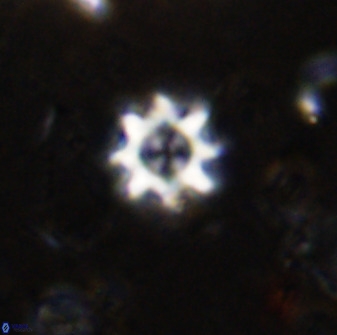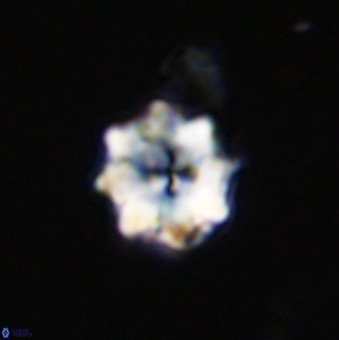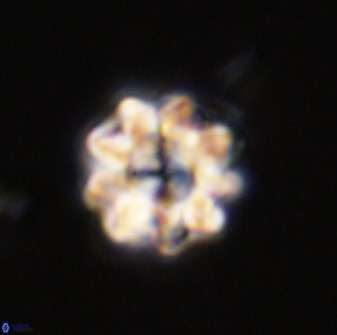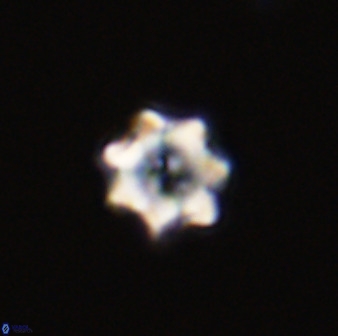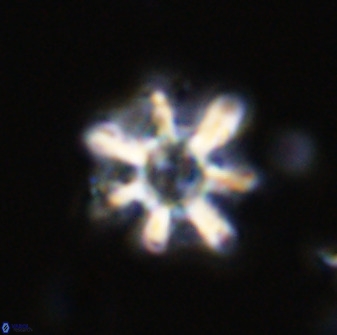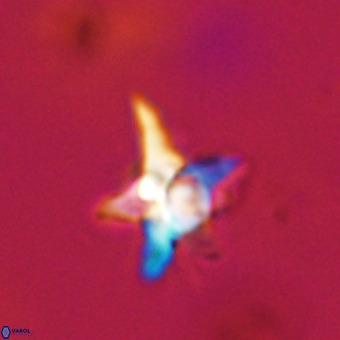Polycyclolithaceae
Polycyclolithus Forchheimer, 1968
Lithastrinaceae Thierstein, 1973
Eprolithaceae Black, 1973
Optical Properties: The optical properties of Polycyclolithaceae align with those observed in the order Polycyclolithales.
Calcareous nannofossils have a double-storey wall, each containing three to twenty-four arms, ray-like, petal-like or brick-like segments. The heights of the two walls are often
unequal. The segments within each wall may be vertical, inclined, or imbricated. The inner ends of the wall segments may either converge at the centre without forming a central opening or leave a central opening.
If a central opening is present, a median or amedian diaphragm extends into it, marking the junction of the two walls. In a multi-tiered diaphragm, the segments overlap each other in a left-handed spiral, resembling the leaves of an iris diaphragm.
The number of segments in the diaphragm always equals that in each wall.
Black, M. 1973. British Lower Cretaceous Coccoliths. I-Gault Clay (Part 2). Palaeontographical Society Monograph 127: 49-112.
Forchheimer, S. 1972. Scanning electron microscope studies of Cretaceous coccoliths from the Köpingsberg Borehole No. 1, SE Sweden. Sveriges Geologiska Undersökning, Series C. #668, 65: 1-141.
Thierstein, H. R., 1973. Lower cretaceous calcareous nannoplankton biostratigraphy. Abhandlungen der Geologischen Bundesanstalt. 29, 3-52.
